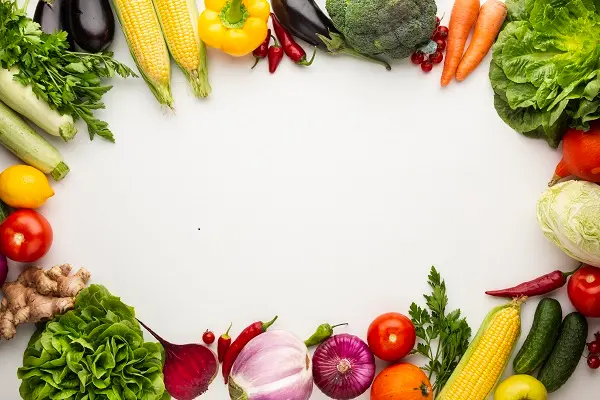5 min. read






COVID-19 Fact: Tourism May Have Disappeared, but Demand for New Zealand Food is Stronger Than Ever
Though tourism was historically a tiny industry, today it is among the most significant drivers of the global economy. It has grown to be a giant over the last few decades, accounting for 10% of global GDP and 320 million jobs. However, countries all over the world imposed travel restrictions in order to restrict the spread of the coronavirus. Among the steps countries are taking to contain the virus outbreak are airport closures, which began at various airports and airlines across the world. This trend has recently expanded to all travel locations.
By the end of 2020, based on countries’ confirmed cases, it was estimated that the coronavirus had spread to 93% of the global population. Three billion people have been trapped inside countries that enforce severe travel restrictions due to the outbreak. However, amid global economic uncertainty, a new study indicates that New Zealand’s land-based industry exports are humming – with a sizable portion is shipping to China; world’s most populous nation.
This global pandemic has brought to light the fundamental disparities that exist within capitalist food systems. Meanwhile, New Zealand’s response to the pandemic has been widely lauded. While the rest of the world has experienced chronic food insecurity, one specific characteristic of the pandemic, New Zealand has maintained their food availability.
What has Caused This Growth?
The COVID-19 pandemic is a global health crisis that has had a devastating effect on the global economy – both directly and indirectly through the required containment steps. The food and agriculture sectors are experiencing the impact of these changes. Although food supplies have remained stable thus far, in many countries, actions taken to combat the virus are beginning to disrupt the supply of agro-food products to markets and customers, both within and across borders. Additionally, the sector is undergoing a significant change in its composition and – for certain commodities – in its level of demand.

Consumers overseas face a wide-spread fear based on their doubt in food purity. It seems that New Zealand’s reputation has weakened because overseas customers are unsure of the country’s quality of goods. However, the country’s statistics prove otherwise. In a NZIER (New Zealand Institute of Economic Research) survey, lead economist and author Chris Nixon has attributed part of the agricultural export sector’s success to the country’s resilience in producing high-quality, clean, and trustworthy goods, as well as innovative organizations.
Main Exports and Trading Allies
New Zealand’s export portfolio is diverse. In 2016, New Zealand listed their top ten trading partners, including the largest and most progressive countries globally, such as the United States of America and China. Delivery partners like Jetkrate have broadened up the opportunity for overseas shipment. Now shipping to USA from New Zealand, or anywhere in the globe has become easy and faster. New Zealand exports a diverse range of goods, but certain production items continue to be their primary export revenue. This sector includes shipping ready-to-eat meals, easy-to-cook foods, and beverages. Additionally, although the country has already secured notable trading allies, New Zealand still seeks to expand its exports to other developing countries worldwide.
Manufacturing & Exporting Products
New Zealand has a long-established and successful tradition of manufacturing and exporting food and beverages. The New Zealand market consists of some big export categories, including dairy, beef, apples, and kiwifruit. While the market was defined by its abundance of these products for many years, more recently, the billion-dollar business of wine and New Zealand freefrom food brands arose. The wine industry has seen substantial sales gains over the previous two decades. The business’s growth is due, in part, to its expansion of value, but much more so from its development of a larger volume.
Popular New Zealand Food
Kiwis
Many of the country’s residents are obsessed with ice cream. New Zealanders, likewise, adore Pavlova. For something a little more nutritious, though, there’s no substitute for the delicious kiwifruit. On the outside, the fruit’s skin is thin, fuzzy, and brown, but the inside is green. The best way to eat kiwi is to scoop out the smooth, juicy flesh from the middle. The demand of the Kiwi fruit is growing worldwide due to its numerous health benefits.

Seafood
New Zealand is famous for housing some of the world’s most spectacular seafood. Besides Japan, New Zealand is among the countries offering the freshest and tastiest seafood globally because of the nation’s extensive shorelines. The country is known to produce high-quality fishes and seashells, which are exported to various nations.
Fish and Chips
Fish and chips are famous in different parts of the world, including New Zealand. Who wouldn’t like crispy chips partnered with juicy, battered, soft fish, right? The country continues to supply exceptional fish and chips on par with other competitive countries out there.
Roasted Lamb
Roasted lamb is another popular dish in New Zealand, not only for locals, but also for tourists. New Zealand is regarded as a country with great pastures, which lead to healthy livestock. For this reason, countries that import lamb meat from New Zealand are guaranteed to receive fresh and high-quality products. You can eat a top-notch roasted lamb, straight from New Zealand, in the comfort of your own home.

Food Inspections on a Scheduled Basis
Food verification facilities are critical to the success of companies. Food verification services must continue during the COVID-19 response to ensure proper food safety management. Before the in-person checks can resume, New Zealand businesses will use an on-site check system built under the Food Act of 2014, known as the Remote Check Systems, which allow businesses’ expansion to include scheduled verification methods of food-safety professionals. This permits professionals who have finished their training to use the phone, Skype, or the internet to verify business suppliers via performing food safety checks remotely.
Efficiency in the Stock Market
From 2000 – 2019, New Zealand’s economy had been stable and gradually increasing. Since the start of the pandemic, every country in the world has been facing various issues, including decreasing finances. However, New Zealand’s food sector continues to export different products to numerous countries, driving earnings. Thanks to their export activities and flourishing food businesses, New Zealand awaits attractive returns.

Takeaway
In light of known significant risks, New Zealand’s food industry is likely a sound long-term investment. Though New Zealand’s response to the pandemic has been successful, the government should have done more in anticipatory policy development. For many other nations, COVID-19 has been a governance failure with immense human costs. This pandemic serves as a vast, global wake-up call for governments and voters alike, who will undoubtedly face more difficult transnational crises in the future.
